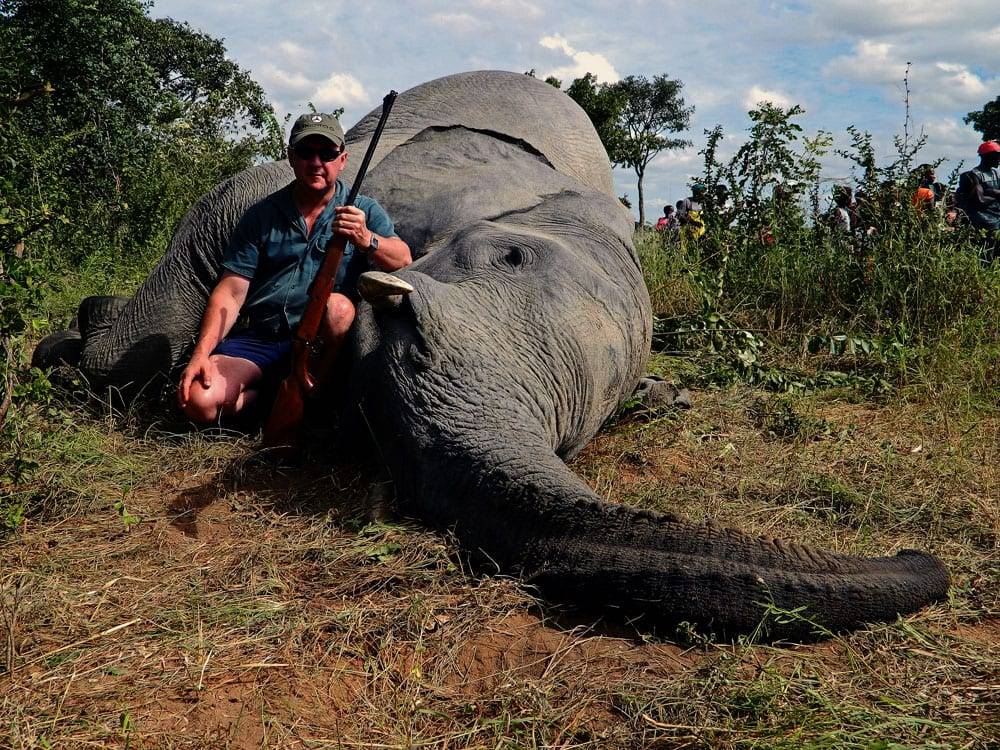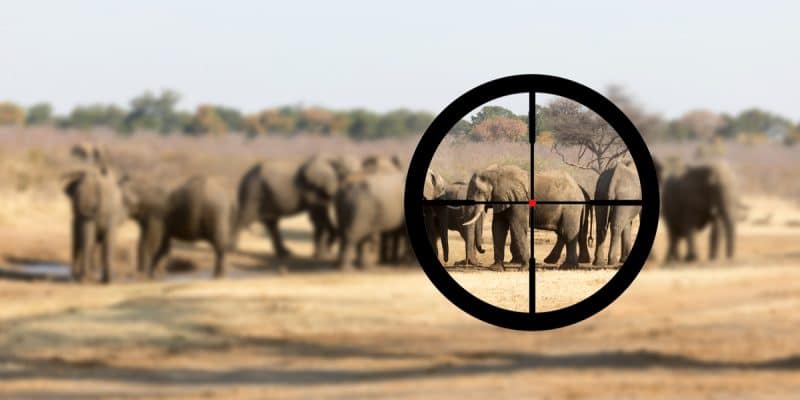Inside Botswana’s Tourism Sector Where Gov’t Is Adjusting Livelihoods By Selling People Rights To Gun Down Elephants

In Africa, it is the age of tourism, when African countries are doing their best to attract visitors and more spend. One of the latest – and rather bizarre efforts to boost this industry is Botswana making it easy for people to shoot down its elephants.
The Mokgweetsi Masisi-led country has held its first major auction for trophy elephant hunting quotas. The development, which comes a year after it placed a ban on hunting, facilitated the sale of 6 licenses to put down 60 elephants.
Ban Lift
For the Southern African country, this is a first to be allowed ever since Masisi revoked a 5-year moratorium in May. The ban, which has been in place since 2014, is reportedly growing a human-elephant conflict, negatively impacting the livelihoods of people.
With up to 135,000 of the specie, Botswana is home to the world’s largest population of elephants – about a third of Africa’s total count. Most of these tuskers are in the Chobe National Park, making it a tourist magnet.
At the auction, only companies registered in Botswana were permitted to bid for the hunting license. The bidders put down a refundable deposit of USD 18 K. The government has also issued a quota for the shooting down of 272 elephants in 2020.
According to Auction It – the firm which conducted the bid – 6 packages were sold for a total price of USD 2.3 Mn. Only one was not sold, because no bidders met the USD 181 K reserve price.
Desperate Measures

Despite the reduction of elephant population, Botswana’s numbers have grown to a record 135,000, up from 80,000 in the late 1990s. The rise has led to a human-animal conflict that greatly manifests in crop and infrastructural damage.
Though conservationists have criticized the license sales, elephants that roam outside their feeding zones have supposedly wrecked more havoc than being an attraction for tourists.
“Elephants have killed a lot of people and destroyed livelihoods. I think government is doing the right thing in reducing their numbers,” Tiro Segosebe, a Gaborone resident whose home village of Maun is one of the areas most affected by the human-wildlife conflict, told Reuters.
A return to commercial hunting is believed to be capable of helping in keeping elephants away from ruralities. It could also drive in the much-needed income in places which are not fertile for high-end tourism.
Botswana has a checkered history with elephants. Last year, the government banned two professional hunters who shot dead a research elephant and tried to hide the evidence.
Possibly Costly
2.5 million foreign tourists visit Botswana to photograph elephants, contributing massively to the country’s 11.5 percent tourism GDP and creating 76, 000 jobs.
A landlocked country, tourism continues to be one of Botswana’s cardinal economic sectors. In 2018, the sector grew 3.4 percent, injecting USD 2.7 Bn into the small country’s economy.
Botswana’s tourism sector grew 3.4 percent in 2018, injecting at least 2.7 billion U.S. dollars into the southern African country’s economy, according to a report by the World Travel and Tourism Council (WTTC).
The same report says travel and tourism directly contributed almost USD 65 Mn – 3.8 percent of total GDP – to the country’s economy in 2017 – the same year when it directly provided 26,000 jobs.
The sector provided in total 7.6% of the total employment translating to 76,000 jobs in the same year. About 1,772 million tourists visited Botswana in 2017 compared to 1,606 million in 2015.
However, recall that the government is gunning down only less than 100 elephants from the hundreds of thousands. Still, it is uncertain how much mixed signals the move would send to tourists or whether the government would stop here.
Featured Image: Linlongwe Wildlife Trust